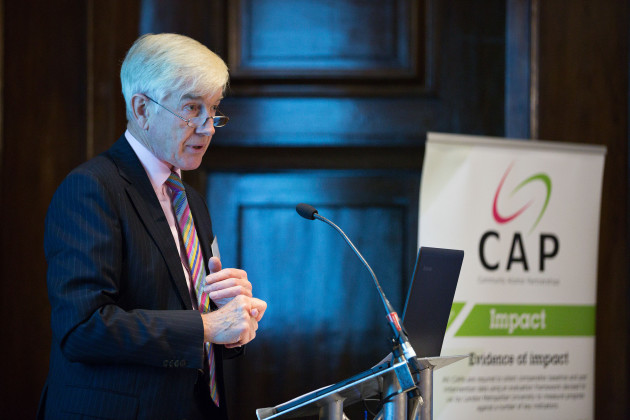
CAP to double local partnerships to 300
The Community Alcohol Partnerships (CAP) has unveiled plans to double its number of local partnerships, aimed at tackling underage drinking, to 300 in the next four years.
As part of the growth strategy, the ‘community interest company’, founded in 2007 by major retailers, said it aimed to extend its remit to provide support as children become young adults.
The ambitious growth plans follows the release of CAP’s 2017 Impact Report, which “clearly showed” how local CAPs were "empowering communities".
The scheme’s “targeted approach’ meant it had succeeded in bringing effective national programmes to areas with greatest harms, said chairman, Derek Lewis.
“CAPs offer an evidence-based and locally tailored response to underage alcohol problems and it is clear from the compelling body of evidence presented in this report that CAPs are making a tangible positive difference to young people, residents and local communities,” he said.
Since first introduced in 2007, the number of CAPs reached 150 at the end of 2016. Current funders include Aldi, ASDA, ACS, Brown Forman, Co-op, Diageo, Heineken, Lidl, Marks and Spencer, Molson Coors, One Stop, Sainsbury’s, SHS Drinks, Tesco and Waitrose.
Highlights from the 2017 Impact Report:
An 80% reduction in alcohol seizures from young people in Edinburgh
A 39% reduction in alcohol-related youth anti-social behaviour in Brecon
An 80% reduction in youth disorder in Tower Hamlets
In Todmorden, West Yorkshire, only 21% of residents reported underage drinking as being a fairly or very big problem after the CAP was set up compared to 60% before the CAP
Corby, Northamptonshire saw a 27% decrease in calls to the police about alcohol-related anti-social behaviour by young people
Since the Airedale, Ferry Fryston and Townville CAP in Wakefield was set up in 2014, alcohol-related anti-social behaviour incidents have declined year on year: 2014: 724 incidents; 2015: 516 incidents; 2016: 466 incidents
At the Alnwick CAP in Northumberland only 5% of residents reported underage drinking as being a fairly or very big problem after the CAP was set up compared to 50% before the CAP
The Reading CAP in Berkshire saw a decline in test purchase failures from 72% in January 2015 to 17% in August 2016
At the Sutton in Ashfield CAP, Nottinghamshire, the percentage of Year 9-11s drinking on a weekly basis fell from 31% to 26% (Year 1) and 13.19% (Year Two)
And at Wantage and Grove CAP in Oxfordshire the percentage of Year 9-11s who do not drink at all increased from 17% to 25%
Regular retailer surveys show that in CAP areas there have been significant reductions in attempted proxy purchase (where adults attempt to buy alcohol for young people) of up to 65%




